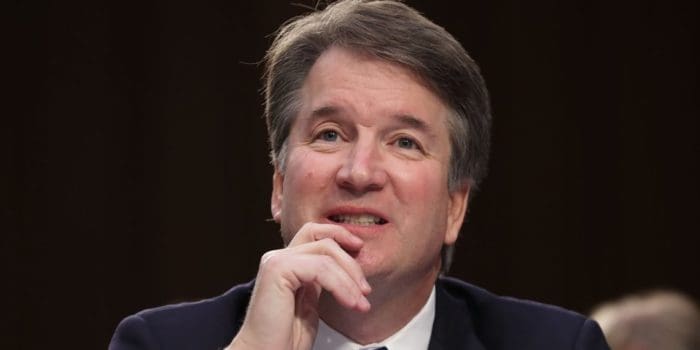“Again this is all about precedent for me, trying to read exactly what the Supreme Court said. And if you read the McDonald case, and I concluded that it could not be distinguished as a matter of law that semiautomatic rifles from semiautomatic handguns, and semiautomatic rifles are widely possessed in the United States. There are millions and millions and millions of semiautomatic rifles that are possessed. So that seemed to fit common use and not be a dangerous and unusual weapon.”
“But the question is are they dangerous and unusual? They’re certainly dangerous — all weapons are dangerous — but are they unusual?” – Brett Kavanaugh to Diane Feinstein during his confirmation hearing
And…
“In my judgment, both D.C.’s ban on semi-automatic rifles and its gun registration requirement are unconstitutional under Heller.
“In Heller, the Supreme Court held that handguns – the vast majority of which today are semi-automatic – are constitutionally protected because they have not traditionally been banned and are in common use by law-abiding citizens. There is no meaningful or persuasive constitutional distinction between semi-automatic handguns and semiautomatic rifles. Semi-automatic rifles, like semi-automatic handguns, have not traditionally been banned and are in common use by law-abiding citizens for self-defense in the home, hunting, and other lawful uses. Moreover, semiautomatic handguns are used in connection with violent crimes far more than semi-automatic rifles are. It follows from Heller’s protection of semi-automatic handguns that semi-automatic rifles are also constitutionally protected and that D.C.’s ban on them is unconstitutional. (By contrast, fully automatic weapons, also known as machine guns, have traditionally been banned and may continue to be banned after Heller.)
“D.C.’s registration requirement, which is significantly more stringent than any other federal or state gun law in the United States, is likewise unconstitutional. Heller and later McDonald said that regulations on the sale, possession, or use of guns are permissible if they are within the class of traditional, “longstanding” gun regulations in the United States. Registration of all lawfully possessed guns – as distinct from licensing of gun owners or mandatory recordkeeping by gun sellers – has not traditionally been required in the United States and even today remains highly unusual. Under Heller’s history- and tradition-based test, D.C.’s registration requirement is therefore unconstitutional.” – Brett Kavanaugh in his dissent in Heller v. D.C., (Heller 2)
Also…
“Gun bans and gun regulations that are not longstanding or sufficiently rooted in text, history, and tradition are not consistent with the Second Amendment individual right.” – Brett Kavaugh in his dissent, Heller v. D.C., (Heller 2) making a point the majority rejected.
One more for the road…
“The majority opinion next contends that semi-automatic handguns are good enough to meet people’s needs for self- defense and that they shouldn’t need semi-automatic rifles. But that’s a bit like saying books can be banned because people can always read newspapers. That is not a persuasive or legitimate way to analyze a law that directly infringes an enumerated constitutional right.” – Brett Kavanaugh in his dissent, Heller v. D.C. (Heller 2)
